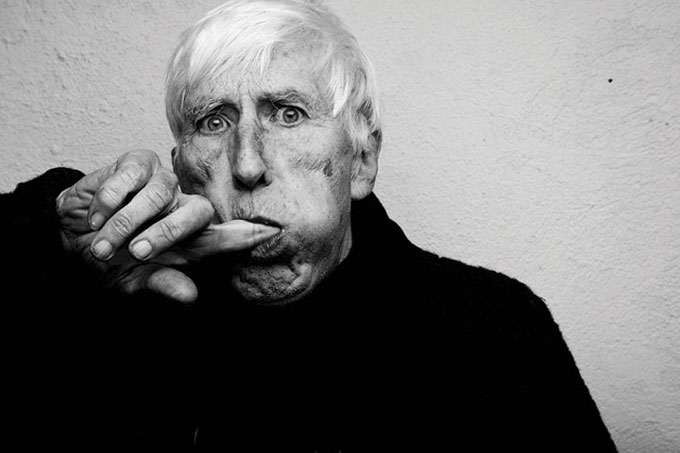Next story: On The Boards Theater Listings
So Many Films, So Little Time
by M. Faust

Highlights from this year’s Toronto International Film Festival
Unless you’re a trade publication like Variety or the Hollywood Reporter that can send a staff of writers to cover it, you just can’t make conclusive comments about the Toronto International Film Festival. Like the five blind men encountering an elephant for the first time, all you can do is report on the particular corner of it to which you happened to be exposed.
This was my 25th festival, and if it wasn’t the best I’ve been to, that’s the luck of the draw. It certainly paled next to last year, when I saw at least a dozen memorable films, led by Melancholia, The Turin Horse, God Bless America, Habemus Papam, The Deep Blue Sea, and Coriolanus. This year I saw 30 films, but that’s barely more than 10 percent of the features shown.
For better and worse, the festival has gotten easier to deal with over the years. Many of the films that get the most attention can easily be avoided because they will be playing local theaters in the coming months. (And if you’re only going to the festival because you suffer from First Critic on the Block syndrome, that makes your choice even easier: Just let yourself be herded around by your publicists.)
And because the festival has been working so hard in recent years to promote its programmers as celebrities, you start to learn what their tastes are. At least one of TIFF’s more prominent programmers has such lousy taste that I tend to avoid anything with his name on it.
Most of all, press is limited by the fact that the festival makes it difficult for us to see anything other than the press screenings, of which there are typically only one per film. When you have as many as 10 press screenings at any given time, you quickly learn that you’re just not going to be able to see everything you want to see.
In other words, I don’t see as many films as I used to, and have less choice in what I see while I’m at TIFF, but having that choice whittled away makes the whole thing a lot less stressful.
(One last gripe: The ostentatious sponsorship of the cable network AMC strikes me as terribly ironic given both the generally abysmal quality of movies they show and the indifferent way they present them—sanitized, edited, pan-and-scanned, and padded out with endless commercials.)
On to the movies. By a wide margin, the best film I saw in Toronto this year was Everyday, by the consistently intriguing British director Michael Winterbottom. Commissioned by England’s Channel 4 to do a fiction film about life inside prison, Winterbottom instead focused on the long-term effects of imprisonment on a family with four young children. He shot the film over a period of five years, and (as you might gather from the title) concentrated on the little events of their lives. Much of what we see is mundane: first days at school, kids being woken and dressed for a visit with daddy. But the discernible growth of the children (played by a set of actual siblings), along with subtle but excellent performances by Shirley Henderson and John Simm (the original Life on Mars series) gives the film an incremental power that, by the end, is emotionally overwhelming.
The documentary The Act of Killing comes with the imprimatur of Werner Herzog and Errol Morris, which would lead one to expect a look into some dark corner of the human soul. And that’s certainly what Joshua Oppenheimer, Christine Cynn, and “Anonymous” provide. There are a lot of functions credited to “Anonymous” at the end of this film shot in Indonesia, which follows Anwar Congo, a petty gangster who in 1965 was given free reign to help in the murder of more than a million people the military junta didn’t like. Congo lives the life of a retired man of leisure, and the filmmakers invited him to make a film recalling his exploits, of which he remains proud. The initial hook of The Act of Killing is the bizarre form Congo’s efforts at self-deification take, but that’s just a way into a mesmerizing and horrifying examination of unspeakable deeds that should never be forgotten. After seeing this, I will never hear the phrase “History is written by the victors” without a chill running down my spine.
History of a less epochal sort is gleefully falsified in A Liar’s Autobiography, based on the memoir by Monty Python’s Graham Chapman, who died of cancer in 1989. Gay, alcoholic, and generally at odds with the role expected of a Cambridge medical student, Chapman’s entire adult life was largely a lie, one which his memoir (concocted with the aid of a handful of other writers, including Douglas Adams) gleefully obfuscates. When tapes of Chapman reading from the book were recently discovered, it became the basis for this 3D film worked on by 15 animation studios in a variety of styles. Other voices are contributed by the surviving Pythons (less Eric Idle, but including Carol Cleveland). Clearly a must-see for Python fans, but even non-devotees will enjoy the endless inventiveness of it all. Best of all, it gave me a chance to interview Terry Jones, a lovely man even when he’s not wearing a dress, which I hope to print when the film is released in late October.
As usual, TIFF did not lack for first-rate documentaries. Far Out Isn’t Far Enough looks at the life of Tomi Ungerer, who in the 1960s was the best-selling creator of children’s books in the US. He was a huge influence on Maurice Sendak, who admired him for being “not respectable at all.” A native of Alsace who survived the war, Ungerer had wide-ranging interests, including radical politics and erotica, which eventually cost him his career in kidlit. (Though who can’t help but note that he never even would have been published in today’s instant information world.) Roman Polanski: Odd Man Out continues the story of another artist scarred by a childhood under the Nazis who found different troubles in the US. Marina Zenovich’s film is a follow-up to her 2008 Roman Polanski: Wanted and Desired, which she fears may have led to Polanski’s recent problems by making the Los Angeles prosecutor’s office look bad. However you feel about the case, she raises issues of legal manipulation, media distortion, and power politics that can’t be ignored.
The Pervert’s Guide to Ideology is two and one-quarter hours of watching clips from movies, many of which you probably would otherwise avoid, in the company of philosopher/provocateur Slavoj Zizek, who illuminates mass media’s function as a delivery tool of capitalist ideology in hidden and blatant ways. If you think that sounds dull, you need to see Zizek do it: He makes bizarre but perceptive links, peppered by delightful trivia. (Did you know that Fidel Castro is a big fan of Jaws? He considers the shark a metaphor for unbridled capitalism.) Outrageously entertaining stuff.
Some non-documentaries I enjoyed: Antiviral, the debut film from David Cronenberg’s son Brandon, which gets a lot of mileage from a premise his father would have adored, a clinic that buys infections from celebrities to resell to their most avid fans; Lines of Wellington, for which Raul Ruiz was in pre-production at the time of his death last year (it was filmed by his wife, Valeria Sarmiento), a historical epic about Napoleon’s invasion of Portugal in 1810 rendered as a series of character sketches by an excellent cast that includes John Malkovich, Vincent Perez, Catherine Deneuve, Isabelle Huppert, Michel Piccoli, and Chiara Mastroianni; and Disconnect, a drama in the Crash mode about lives disrupted by the impersonality of the internet, starring Jason Bateman, Alexander Skårsgard, and Hope Davis, and directed by Henry Alex Rubin (Murderball).
As for the bad films, I’ll confine myself to two: Aftershock, a stupid and depressing horror movie made in Chile and produced by Eli Roth, which belongs on SyFy at 3am; and the big-budget Cloud Atlas, directed by the former Wachowski brothers (now Andy and Lana) with the aid of Tom Tykwer, a $100 million adaptation of David Mitchell’s time-spanning novel that looks to me to be the blockbuster flop of the year.

|
Issue Navigation> Issue Index > v11n39 (Week of Thursday, September 27) > So Many Films, So Little Time This Week's Issue • Artvoice Daily • Artvoice TV • Events Calendar • Classifieds |









 Current Issue
Current Issue